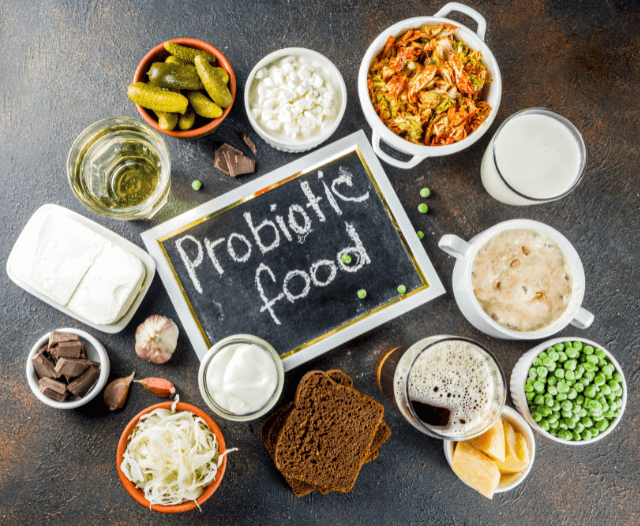Introduction
Our gut health is intricately linked to our overall well-being, influencing everything from digestion and nutrient absorption to immune function and mental health.
As experts in digestive health, gastroenterologists emphasize the importance of lifestyle factors in maintaining optimal gut health.
In this comprehensive guide, we’ll delve into the expert advice from gastroenterologists on lifestyle changes that can promote a healthy gut, empowering you to take proactive steps towards improved digestive wellness.
Understanding Gut Health
The gut microbiota, a diverse community of microorganisms residing in our digestive tract, plays a pivotal role in gut health.
A balanced and diverse microbiota helps regulate digestion, supports immune function, produces essential nutrients, and protects against harmful pathogens.
Lifestyle factors such as diet, physical activity, stress levels, sleep quality, and medication use can significantly influence the composition and function of the gut microbiota.

Expert Tips for Improved Gut Health
- Adopt a Fiber-Rich Diet: Gastroenterologists consistently recommend a diet rich in fiber, as it promotes bowel regularity, supports healthy digestion, and nourishes beneficial gut bacteria. Incorporate a variety of fiber-rich foods into your meals, including fruits, vegetables, whole grains, legumes, nuts, and seeds. Aim for at least 25-30 grams of fiber per day to maintain optimal gut health.
- Prioritize Probiotic Foods: Probiotics are beneficial bacteria that support gut health by promoting a balanced microbiota and reducing inflammation. Include probiotic-rich foods such as yogurt, kefir, sauerkraut, kimchi, miso, and kombucha in your diet regularly. These fermented foods provide a natural source of probiotics and can help maintain a healthy microbial balance in the gut.
- Limit Processed Foods and Added Sugars: Highly processed foods and those high in added sugars can disrupt gut health by promoting inflammation and altering the composition of the gut microbiota. Minimize your intake of processed snacks, sugary beverages, refined grains, and desserts, opting instead for whole, nutrient-dense foods that support gut health.
- Stay Hydrated: Adequate hydration is essential for optimal digestive function, as it helps soften stool, prevent constipation, and support the mucous lining of the intestines. Aim to drink plenty of water throughout the day, and consider consuming hydrating foods such as fruits, vegetables, and herbal teas to maintain optimal hydration levels.
- Manage Stress: Chronic stress can have a profound impact on gut health, disrupting digestion, increasing inflammation, and altering gut microbiota composition. Practice stress-reduction techniques such as mindfulness meditation, deep breathing exercises, yoga, tai chi, or spending time in nature to promote relaxation and support gut health.
- Get Regular Exercise: Physical activity is not only beneficial for cardiovascular health and weight management but also plays a crucial role in promoting gut health. Regular exercise helps stimulate bowel movements, reduce bloating and gas, and support a healthy gut microbiota. Aim for at least 30 minutes of moderate intensity exercise most days of the week to reap the benefits for your digestive system.
- Prioritize Quality Sleep: Quality sleep is essential for overall health, including gut health. Poor sleep habits can disrupt circadian rhythms, impair immune function, and alter gut microbiota composition. Aim for 7-9 hours of restorative sleep per night, practice good sleep hygiene habits, and establish a consistent sleep schedule to support optimal gut health.
- Limit Alcohol and Caffeine: Excessive alcohol consumption and caffeine intake can irritate the gastrointestinal tract, disrupt digestion, and contribute to inflammation. Limit alcohol intake to moderate levels and consider reducing caffeine consumption if you experience digestive discomfort or sleep disturbances.
- Avoid Smoking: Smoking is harmful to gut health, as it can increase the risk of gastrointestinal disorders such as peptic ulcers, gastroesophageal reflux disease (GERD), and inflammatory bowel disease (IBD). If you smoke, consider quitting or seeking support to help you quit smoking and improve your gut health.
- Practice Mindful Eating: Mindful eating involves paying attention to the sensory experience of eating, including taste, texture, and aroma, as well as hunger and fullness cues. Eating mindfully can help you enjoy your meals more, improve digestion, and prevent overeating, promoting overall gut health.

Foods That Improve Gut Health
Improving gut health involves incorporating foods rich in fiber, prebiotics, probiotics, and essential nutrients. Here are some examples:
- Fiber-Rich Foods: Whole grains like oats, barley, and brown rice, as well as fruits and vegetables like apples, bananas, berries, broccoli, carrots, and spinach, are excellent sources of fiber. Fiber promotes regular bowel movements, prevents constipation, and supports the growth of beneficial gut bacteria.
- Prebiotic Foods: Prebiotics are non-digestible fibers that nourish beneficial gut bacteria. Foods rich in prebiotics include garlic, onions, leeks, asparagus, chicory root, Jerusalem artichokes, and dandelion greens.
- Probiotic Foods: Probiotics are live beneficial bacteria that colonize the gut and support digestive health. Fermented foods like yogurt, kefir, sauerkraut, kimchi, miso, tempeh, and kombucha are natural sources of probiotics.
- Fermented Foods: In addition to probiotics, fermented foods contain enzymes and organic acids that support digestion. Incorporate fermented foods like yogurt, kefir, sauerkraut, kimchi, pickles, and kombucha into your diet.
- Omega-3 Fatty Acids: Foods rich in omega-3 fatty acids, such as fatty fish (salmon, mackerel, sardines), flaxseeds, chia seeds, and walnuts, have anti-inflammatory properties that can benefit gut health.
- Polyphenol-Rich Foods: Polyphenols are plant compounds with antioxidant and anti-inflammatory properties that support gut health. Include foods like berries, grapes, cherries, apples, green tea, cocoa, dark chocolate, and olive oil in your diet.
- Bone Broth: Bone broth is rich in collagen, gelatin, and amino acids that support gut health and repair the intestinal lining. Homemade bone broth made from simmering animal bones (such as chicken, beef, or fish) is an excellent option.
- Ginger and Turmeric: These spices have anti-inflammatory and antioxidant properties that can benefit gut health. Add fresh ginger and turmeric to your meals or brew them into teas for a soothing effect on the digestive system.
- Fermentable Fiber: Certain types of fiber, known as fermentable fibers or resistant starches, are broken down by gut bacteria into short-chain fatty acids that nourish the cells lining the colon. Sources include green bananas, cooked and cooled potatoes, legumes, and whole grains.
- Nuts and Seeds: Nuts and seeds like almonds, walnuts, flaxseeds, chia seeds, and pumpkin seeds are rich in fiber, healthy fats, and essential nutrients that support gut health.
Incorporating a variety of these foods into your diet can help promote a diverse and balanced gut microbiota, support digestive health, and reduce the risk of gastrointestinal disorders.
Remember to consume these foods as part of a balanced diet and consult with a healthcare provider or registered dietitian if you have specific dietary concerns or medical conditions.

Conclusion
Incorporating these lifestyle changes into your daily routine can have a profound impact on your gut health, supporting digestion, promoting a balanced gut microbiota, and reducing the risk of gastrointestinal disorders.
By following the expert advice from gastroenterologists and prioritizing your digestive wellness, you can take proactive steps towards improved gut health and overall well-being.
Remember that small changes can lead to significant improvements over time, so start implementing these tips today to nurture a healthy gut for years to come.
Contact Dr. Deetlefs
Gi Doc Capetown is a practice founded to provide medical solutions in the area of gastroenterology.
Over the years, Dr Eduan Deetlefs has earned the reputation of a trusted health expert providing consultative, diagnostic, and therapeutic endoscopic and related services to patients in
Cape Town and beyond.
If you would like to book an appointment with a gastrointestinal (GI) specialist or would simply like more information on a particular GI topic, don’t hesitate to use our online booking form or call Dr. Deetlefs at 021 551 867.
DISCLAIMER: PLEASE READ CAREFULLY
The information on this website is to provide general guidance. In no way does any of the information provided reflect definitive medical advice and self-diagnoses should not be made based on information obtained online. It is important to consult a Gastroenterologist or medical doctor regarding ANY and ALL symptoms or signs including, but not limited to: abdominal pain, haemorrhoids or anal / rectal bleeding as it may a sign of a serious illness or condition. A thorough consultation and examination should ALWAYS be performed for an accurate diagnosis and treatment plan. Be sure to call a physician or call our office today and schedule a consultation.
© Dr. Eduan Deetlefs, Registered Gastroenterologist, GI Doc Cape Town
Our website information is not intended or implied to be a substitute for professional medical advice, diagnosis or treatment. Please consult a doctor about your specific condition. Only a trained physician can determine an accurate diagnosis and proper treatment.


